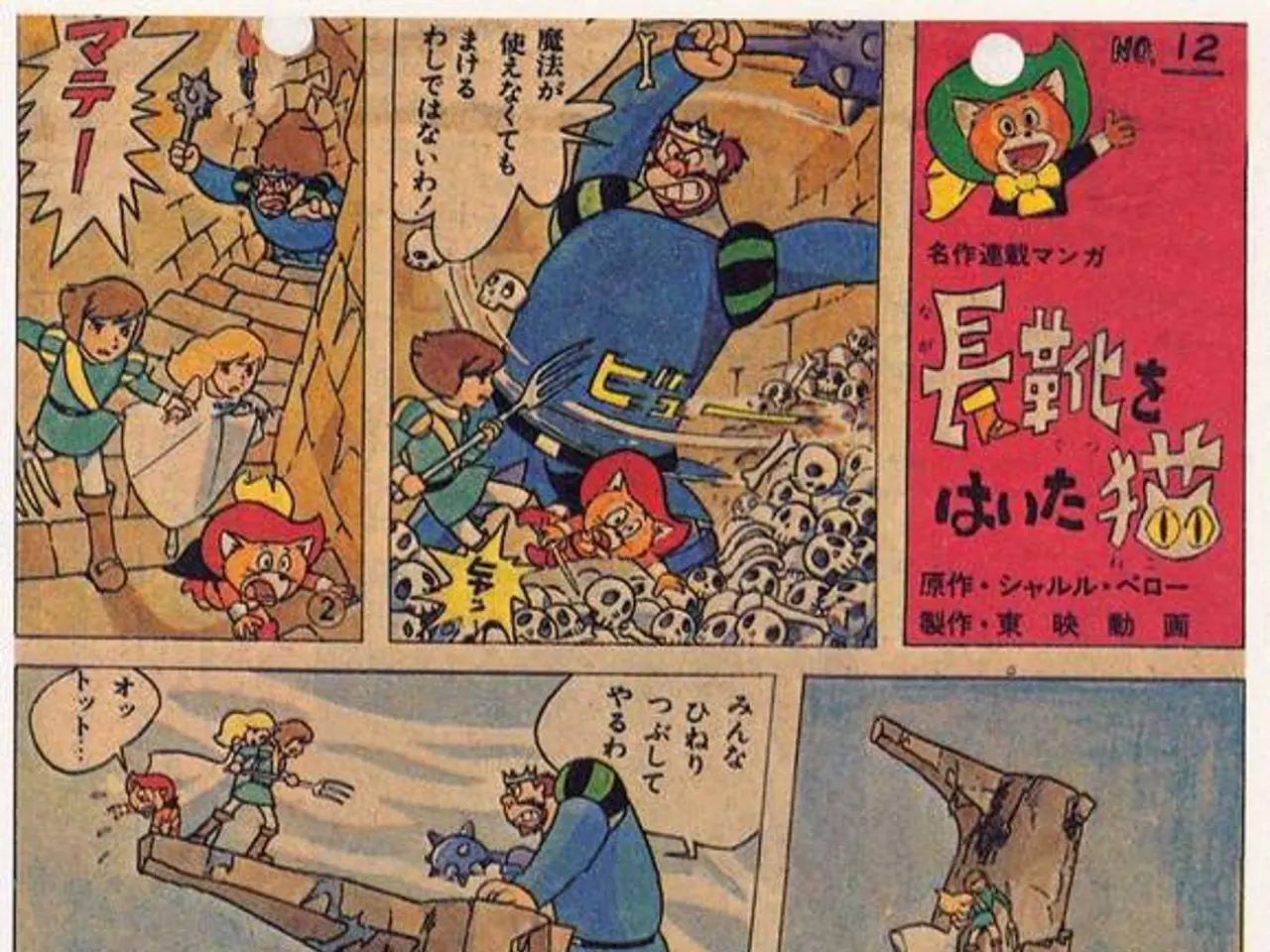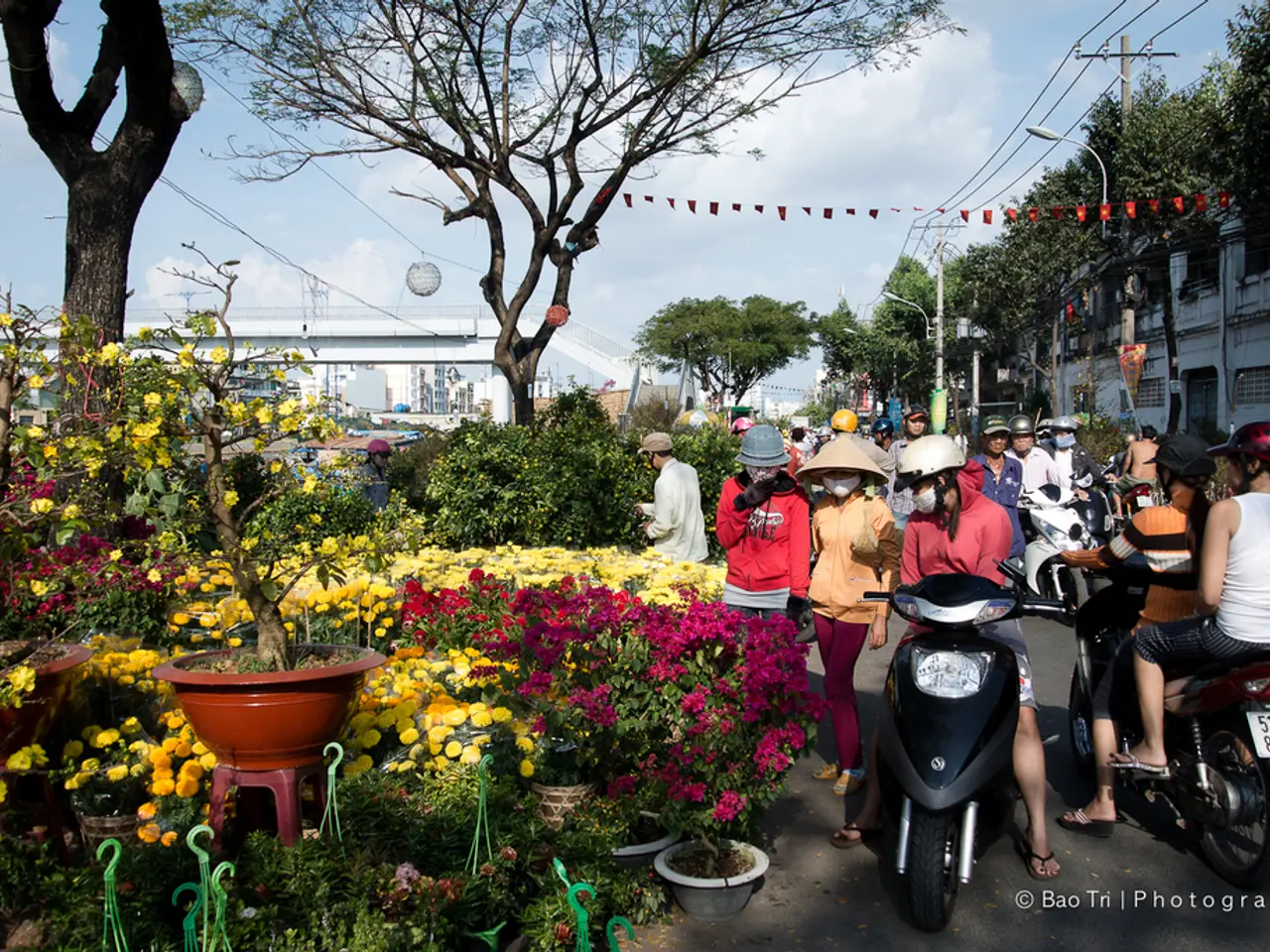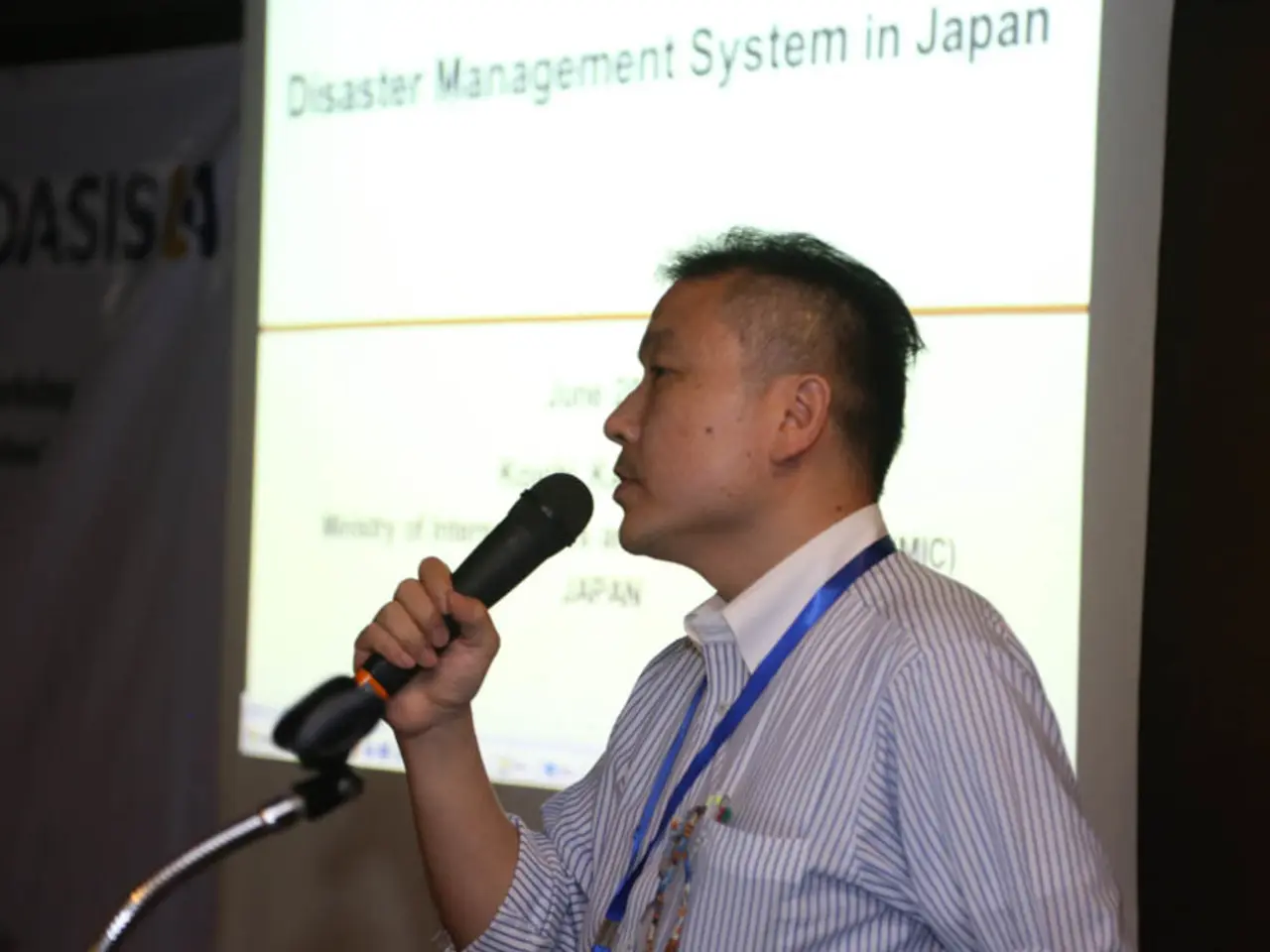U.S. President Trump Affirms Israeli Control over Aid Distribution in Gaza
The United Nations-backed food security experts have warned that the worst-case scenario of famine is currently unfolding in Gaza. This dire situation is largely attributed to the tightened Israeli blockade, with food being almost exclusively allowed into the territory through the Gaza Port (GHF).
Amidst this crisis, the US President, Donald Trump, has expressed support for Israel, suggesting that they should run food distribution centres in Gaza. However, concerns have been raised about the safety and efficiency of this approach.
Trump has stressed the Israeli claim that Hamas, the governing authority in Gaza, steals food assistance distributed in the territory. This claim, however, has been denied by aid groups and United Nations officials. Despite these allegations, Trump has shown trust in Israel to handle the distribution of US aid, a decision that has been met with criticism.
The blockade has sparked an Israeli-imposed hunger crisis in Gaza, leading to dozens of deaths due to malnutrition. Furthermore, hundreds of Palestinians have been killed by Israeli fire while attempting to reach or leave GHF centres.
The concerns regarding Israel's handling of US aid distribution in Gaza revolve around allegations of delays, restrictions, and interference in the delivery of humanitarian aid. These actions are said to put civilians in Gaza at risk.
- Delays and Restrictions on Aid Flow: Reports indicate that Israel has imposed strict controls on the movement of goods and people into Gaza, including humanitarian aid shipments financed by the US. These controls sometimes result in delays or reductions in aid reaching the intended recipients, exacerbating humanitarian needs.
- Safety of Aid Seekers: There are allegations and reports from human rights organizations and eyewitness accounts that civilians attempting to receive or distribute aid in Gaza face dangerous conditions, including exposure to conflict zones, checkpoints, or direct interference by Israeli military personnel.
- Use of Aid as a Political or Security Tool: Critics argue that restrictions on aid may be used by Israel as leverage in the ongoing conflict with Hamas, thereby politicizing humanitarian assistance and affecting its timely and impartial distribution.
- Transparency and Monitoring: Questions have been raised about the transparency of aid distribution monitoring, with concerns that some aid may not fully reach vulnerable populations due to bureaucratic hurdles or diversion.
Evidence and reports from humanitarian agencies like the UN and NGOs have documented instances where aid deliveries were delayed or reduced due to security checks and permit requirements imposed by Israel. Some investigative reports and statements from aid workers have highlighted dangerous conditions on the ground for civilians trying to access aid, including crossing checkpoints or navigating conflict-affected areas. US officials have publicly expressed concerns at times about ensuring that American aid reaches civilians swiftly and safely, urging cooperation from all parties involved.
While Israel asserts that security measures are necessary to prevent aid diversion to militant groups and to protect legitimate security interests, human rights groups and some international observers raise significant concerns about the humanitarian impact of these controls on Gaza’s civilian population and the safety of aid recipients.
Recent whistleblower testimonies from the Israeli military and GHF have detailed abuses committed at the foundation's sites in recent weeks, further fueling the debate. The international community continues to watch closely as this situation unfolds, with hopes for a swift and humane resolution to the crisis in Gaza.
- The delivery of humanitarian aid in Gaza has been plagued with reports of delays and restrictions due to Israel's control of goods and people movement, potentially worsening the critical conditions faced by the population.
- The safety of civilians seeking aid in Gaza is at risk, as human rights organizations and eyewitness accounts allege dangerous conditions, such as exposure to conflict zones, checkpoints, and interference by Israeli military personnel.
- Allegations persist that Israel is using aid as a political or security tool to exert leverage in the ongoing conflict with Hamas, leading to charges that humanitarian assistance is being politicized and not distributed in a timely or impartial manner.






